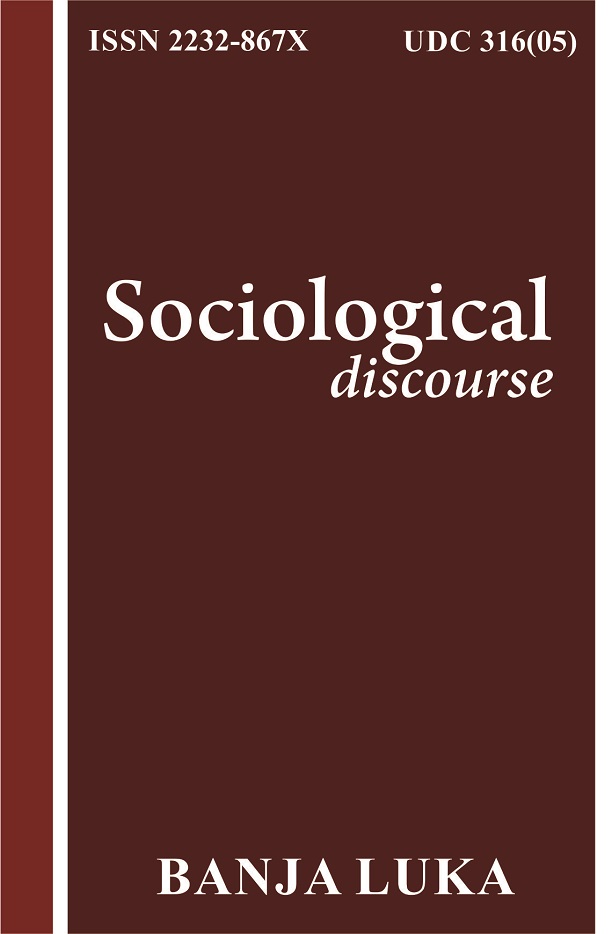Methodological complementarity of sociology and history in the study of demographic processes
DOI:
https://doi.org/10.7251/SOCEN1407039VAbstract
Properly and accurately interpreted historical data over time are the recognition
of a serious scientifi c research seeking their sociological explanation and
interpretation. Th e necessity of complementarity of sociology and history in
scientifi c thought is recognized in diff erent time periods based on the scientifi c
trends and tendencies in these two disciplines. Th e subjects of the sociology and
history are mostly identical, but the roads that they use to come to fi ndings
are diff erent. Th eir connection is evident in the unity of diff erent cognitive
goals. Historical studies are based on specifi c and individual and sociological
on the identifi cation of the general patterns in historical events. One of the
scientifi c phenomena that can be studied with a considerable degree of disciplinary
consent of sociology and history is the problem of demographic shifts,
or processes. Consideration of demographic trends of one or a diff erent social
period falls within the historical sociology, which is a scientifi c discipline
constituted during the last decades of the twentieth century. Th e demographic
data presented in statistical or empirical materials are historical records, and
their explanation is the subject of sociological theory. Demographic phenomena
and demographic trends have their historical duration and historical
foundation. Th e sociological studies of demographic trends, and through the
history, and in modern time contribute to defi ning and determining the demographic
structure as a substructure of society. For this reason, within the
study of demographic trends is necessary the methodological complementarity
of the sociology and history as well as to mutually complement each other.
